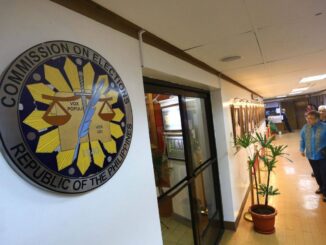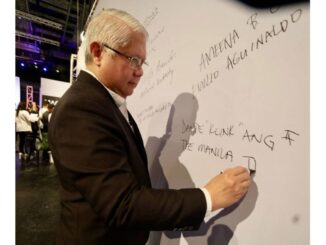
THE expansive reach of social media platforms provides fertile ground for anti-corruption movements, allowing citizens to engage, report corruption, and hold public officials accountable, according to the director of the Centre for Forensic Accounting Studies at the Islamic University of Indonesia.
At a recent seminar on anti-corruption, Dr. Hendi Yogi Prabowo emphasized how information and communication technologies (ICTs) have become pivotal tools for promoting transparency, accountability and public engagement in the fight against corruption.
Prabowo said that with over 256 million people, Indonesia is rapidly becoming one of the largest digital markets globally. As of 2016, 51.8 percent of the population were internet users, and an astonishing 97.4 percent of them utilized social media platforms.
Prabowo pointed out that social media platforms like Facebook and X, formerly known as Twitter, have facilitated public discourse around high-profile corruption cases.
For instance, public reactions to the arrest of Bengkulu Governor Ridwan Mukti for corruption were analyzed through 300 tweets, revealing a strong condemnation of the incident, particularly focusing on the alleged involvement of his wife.
Avid interest in the Mukti case reflects a growing public demand for accountability and transparency among public officials.
Prabowo elaborated on the concept of behavioral forensics, which examines the human behaviors that contribute to corrupt practices.
He said by understanding the motivations behind these behaviors, activists can tailor their messages to resonate with the public, thereby fostering a culture of integrity.
His research indicates that the perceived costs of engaging in corrupt acts — such as guilt, shame and societal backlash — can outweigh the short-term benefits.
Data presented by Prabowo indicates that corruption offenders in Indonesia primarily include members of regional and central parliaments (20 percent) and various government echelons (23 percent).
This distribution underscores the widespread nature of corruption and the urgent need to combat it.
According to Prabowo, traditional media plays a crucial role in promoting accountability by investigating and reporting on corruption.
He said mass media can amplify the public’s voice, drawing attention to violations and fostering a culture of accountability.
Prabowo noted that the media’s coverage can encourage public condemnation of corrupt actions, creating a deterrent effect against future misconduct.
Looking ahead, Prabowo stressed the need for optimizing social media’s potential in various dimensions of anti-corruption efforts, including prevention, detection and investigation.
He highlighted the importance of public participation and education, noting that a well-informed citizenry is vital for effective anti-corruption strategies.
Prabowo said technological advancements in areas like data analysis and visualization can enhance the ability to track and investigate corruption cases. The use of tools like NVivo 11, a program for qualitative research, to analyze social media conversations exemplifies how technology can provide insights into public sentiment and the dynamics of corruption discussions.
By leveraging the vast potential of digital platforms, activists and citizens can mobilize collective action, share information, and demand accountability from their leaders, Prabowo said.





Be the first to comment